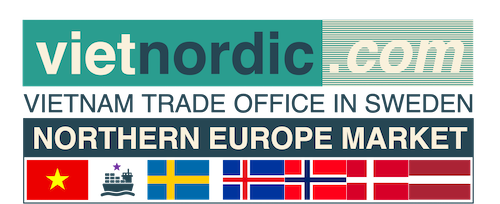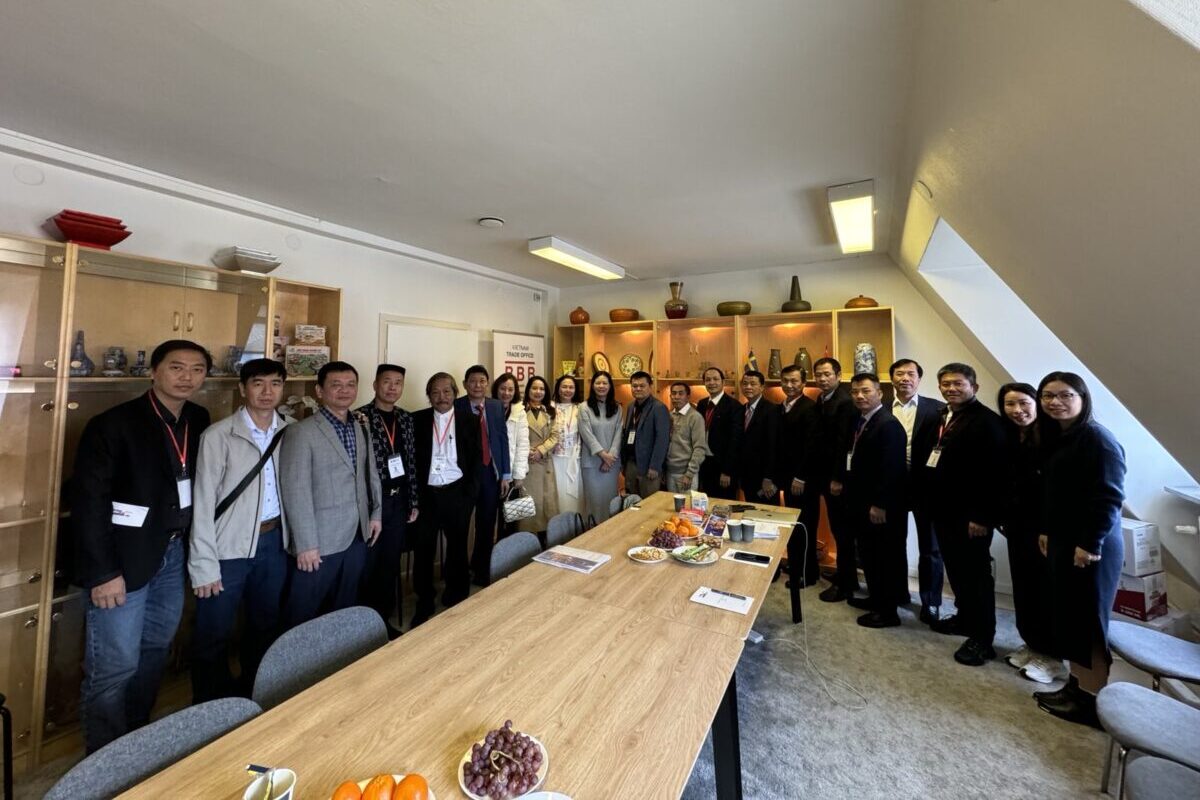On October 8, 2024, at the headquarters of the Vietnam Trade Office in Sweden, Mrs. Nguyen Thi Hoang Thuy, Vietnam’s Commercial Counselor to Sweden and the markets of Denmark, Norway, Iceland, and Latvia, hosted a working session with a business delegation organized by the Vietnam Chamber of Commerce and Industry (VCCI). The meeting focused on discussing the Nordic market landscape, export opportunities, and the challenges Vietnamese businesses face in successfully entering this region.
The delegation included representatives from key industries such as seafood, textiles, minerals, construction, engineering, and information technology. During the session, Mrs. Thuy provided a comprehensive overview of the geographic, economic, and consumer trends across the Nordic countries. She highlighted strategic commitments in the EU-Vietnam Free Trade Agreement (EVFTA) that benefit several Vietnamese export staples, such as rice, coffee, and seafood.
Furthermore, Mrs. Thuy emphasized the potential for exporting innovative and eco-friendly products to the Nordic market, which, although small, is a trendsetter in adopting sustainable and environmentally friendly consumer products. She pointed out that the Nordic region is pioneering in creating new consumer trends, offering substantial opportunities for Vietnamese businesses if they leverage EVFTA benefits and understand market demands.
Viewing the Nordic market from a new perspective
Traditionally, potential export markets are assessed based on factors such as market size, purchasing power, entry barriers, and competition levels. By these standards, Nordic countries may appear less attractive due to their smaller size, high entry barriers, and intense competition. This perception may lead some Vietnamese businesses, often focused on volume and price competitiveness, to deprioritize the Nordic markets.
However, the Nordics represent “elite” and “trend-leading” markets in various global trends. The region leads in areas such as environmental protection, climate change mitigation, elderly healthcare, promoting high-quality lifestyles, and sustainable development. These countries have cohesive social systems, high welfare standards, and prioritize intelligent consumption. Thus, the Nordics offer promising prospects for high-quality Vietnamese products if businesses can adapt and respond effectively.
For Vietnam’s export growth, the Nordics should be seen not just as “small markets” but as strategically influential markets. Successfully exporting to this region could bring not only economic benefits but also help build a global reputation for Vietnamese goods due to the strong influence of the Nordic market on international consumer trends.
Business connections and trade promotion
During the meeting, businesses discussed products such as seafood, wood, pulp, textiles, OCOP-certified products, and alcoholic beverages. They expressed their desire for support from the Trade Office in connecting with Nordic partners. Mrs. Thuy underscored the importance of utilizing the Trade Office’s online tools, including the vietnordic.com website and the official Facebook page, to stay updated on market information and promote products to potential partners.

